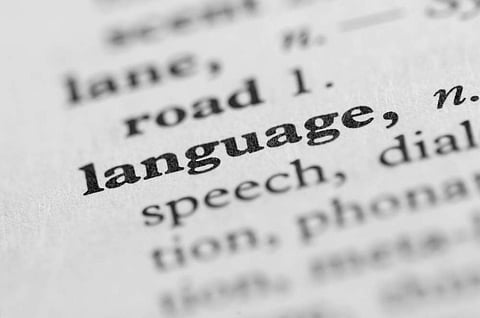

The title of a message written on a plaque of dedication reads: “Dedicated to a friend, a guide and a philosopher”. I asked the person who prepared the message whether the dedication was to three different persons. She replied, “No. It is dedicated to just one person. The person is close to all of us in our family.” I said, “Great. The message that you implied is not conveyed effectively. The title implies that your dedication is to 1) a friend, 2) a guide and 3) a philosopher.” “Oh my god. How should it be reworded so that it can make sense?” she asked. “It is simple. Delete the article ‘a’ used before ‘guide’ and ‘philosopher’. If it is corrected that way, it will make sense,” I replied. Look at these examples:
1. Dr Rayan is an academic, columnist and freelance writer. (refers to one person)
2. We should invite an academic, a columnist and a freelance writer for the inauguration of the literary festival. (three persons).
In the first sentence, the indefinite article ‘a/an’ is used only once, that is, before the first noun ‘academic’ and the other two nouns are not preceded by any article. Therefore, the sentence implies that the reference is to only one person, Dr Rayan. In the second sentence, the indefinite article ‘a/an’ is used before the three nouns: ‘academic’, ‘columnist’ and ‘freelance writer’ and therefore, the sentence implies that three different persons should be invited for the literary festival. Here are more examples:
• William Shakespeare was an English poet, playwright and actor.
• Bertrand Russell was a British philosopher, logician, mathematician, historian, writer, essayist, social critic, political activist, and Nobel laureate.
Is it correct to say: “I would like to meet the principal and the head of the institute.”? If the principal and the head of the institute are two different persons, then the sentence is correct. If the principal is also the head of the institute, then the sentence is incorrect. If the definite article ‘the’ is removed the sentence will make sense.
• I would like to meet the principal and the head of the institute. (two different persons)
• I would like to meet the principal and head of the institute. (one person)
To make it clear and to avoid ambiguity, we can rephrase the sentences in different ways:
• He is not only the principal but also the head.
• He is both the principal and head of the institute.
Most English language learners have trouble with the English article system. It is because they do not have equivalent structures in their native languages. Only adequate exposure to the language helps learners know the article system. For example, we do not use the article with the following words: home, work, jail, church, bed, school, and college.
• When are you going home?
The article ‘the’ is used with the following words: bank, movies, office, hospital, post office, airport, train station, bus stop, and dentist.
• When are you going to the dentist?
The word “the” is the single most common word in the entire language, while the word “a” is the fifth most common.
